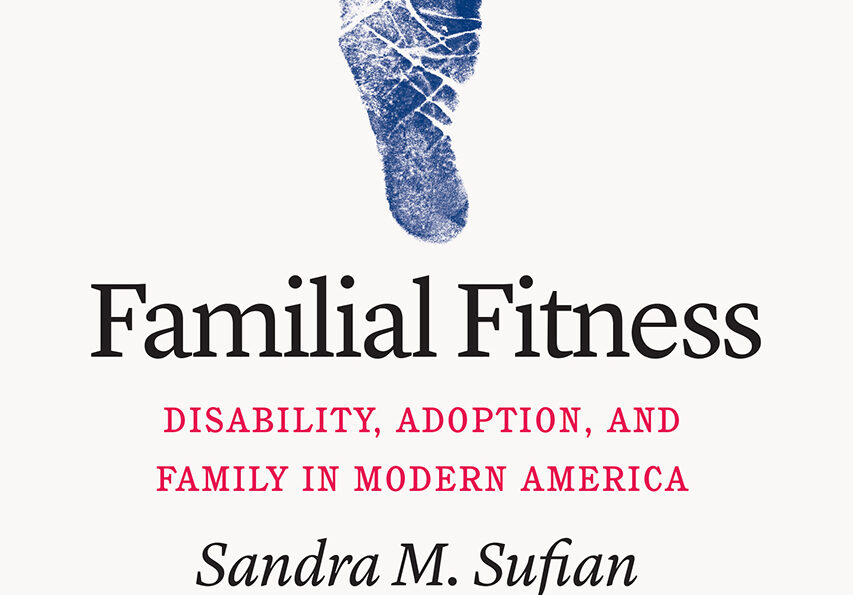Sandra Sufian publishes book on the social history of disability and difference in American adoption

Introduction
“I see access to family as the first fundamental need of people with disability,” says Sandy Sufian, professor of disability and human development in the College of Applied Health Sciences and associate professor of health humanities and history in the College of Medicine.
In the past, children with disabilities have waited years to be adopted in the U.S., but the issues and attitudes used to determine their adoptability have long been unexplored.
“How do ideologies around disability and risk translate into policies and practices for adoption? How can we understand the complexity around the social conditions that influence health, medicine and disability?” Sufian asks.
These questions drew her to write “Familial Fitness: Disability, Adoption and Family in Modern America,” the first social history of disability and difference in American adoption during the 20th century.
The book, published by University of Chicago Press, took over 11 years to complete because of its scope and complexity.
“I drew on the history of adoption policy, disability history, women's history, the history of childhood, of family, of psychology and psychiatry, and U.S. history,” Sufian says.
She combed the Social Welfare History Archives of the University of Minnesota, the National Archives, the National Library of Medicine and the archives of the American Association of Pediatrics for primary sources.
Reviewers have praised the book’s thoroughness in covering a neglected topic.
“What counts as a family? And what kind of person is sufficiently human to belong to one? This deeply researched, deeply felt book offers a fine-grained and usable history of changing constructions of ability/disability and of family in the 20th century United States,” wrote Margaret Homans, professor of English and women's, gender and sexuality studies at Yale University.
Susan Schweik, professor of English and disability studies scholar at University of California Berkeley, describes “Familial Fitness” as “a necessity and a major achievement.” Molly Ladd Taylor, professor of history at York University, says the book “transforms 80 years of disjointed policies and practices into a compelling narrative demonstrating the centrality of disability to ideas about children’s work and adoptability and to the construction of American families.”
Sufian has a Ph.D. in Middle East studies from New York University and an MPH in epidemiology and biostatistics from Oregon Health and Science University. Her work follows an interdisciplinary, nontraditional path, combining the history of medicine and history of disability in the Middle East and the U.S. She teaches courses on the history of disability and the modern history of medicine and public health to medical students, PhD students and undergraduates.
Her first two books focused on the Middle East: “Healing the Land and the Nation: Malaria and the Zionist project in Mandatory Palestine, 1920-1947,” and “Reapproaching the Border: New Perspectives on the Study of Israel/Palestine.”
“I let my interests lead me, rather than traditional disciplinary boundaries,” she says.
For her next project, Sufian is studying female health issues among women with chronic illness, using a patient-centered approach.
“I bring a cross-fertilization sensibility into each field I work in,” she says.